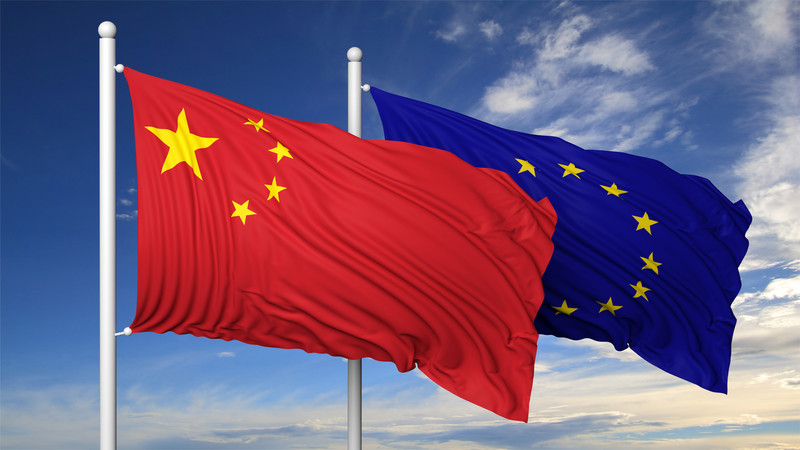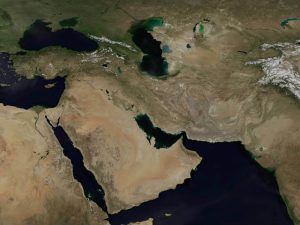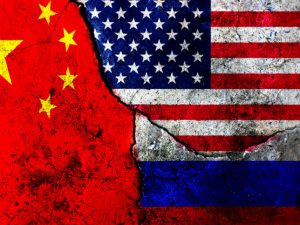One of the world’s most ambitious projects, named „One belt, one road“, is China’s state-owned project, which is basically economic, but also a major political and geopolitical project An integral part of this megaproject is the 17+1 mechanism, which predicts extensive and innovative, mainly infrastructural projects with ultimate goal of facilitating the rapid and inexpensive flow of good and services from China to Western European markets.
With the „One belt, one road“ initiative China wants to increase its power in the regions, where are dominant Western ideals and norms.
This main goal has its own sub-goals, which are planned as an ancillary direction of action, and include Chinese investment in individual regions and countries, which somewhat breaks the established system of economics relations in Europe.
About the Chinese initiative, Jing Wei Ang from National University of Singapore, says: „The „One belt, one road“ initiative is one of the most important geopolitical projects for establishing a strategical sphere of influence in the traditionally western dominated region“.
The Initiative, being widely carried out in not only the Balkans but also in notable areas such as the African peninsula and in South America, seems to be a projection tool that is being utilized by the burgeoning state trying to grow its soft power in a world traditionally dominated by Western ideals and norms. It is to be noted that these regions are regions traditionally seen as being weaker in terms of their adherence to the United States and also more receptive to aid due to economic circumstances, said Ang.
The importance of the Western Balkans
Southeast European countries are in an important geographical area for this Chinese project, which is why they are called the Balkan Silk Road. As part of this, China has provided various investment and development funds and credit lines for the Balkan countries.
According to Prof. dr. Ali Çaksu from Yildiz Tehnical University, China has a global plan to replicate the current hegemon, namely the United States, and that plan would be achieved in a few decades. Professor Çaksu adds: „ Therefore Chinese interest and activities in any region should primarily be seen in this light. For China, Western Balkans is a section in the chapter of Europe. As we know, Eurasia has a central place in the ‘Belt and Road Initiative’ (BRI).”
Balkans is the natural land route connecting Asia and Europe and is therefore very important. Western Balkans is also important as part of the Mediterranean which lies among three continents.
„Given the proximity of the Balkans to the major European powers and the fact that the Balkans is too far from China, it is not realistic that China could realise immediate benefits in the short term. The most important at this moment is the long-term political alignment of the Balkan countries with China’s goals“, explains Ang from the University of Singapore.
According to European Union data, so far, Chinese investments in Western Balkan countries are exclusively credit facilities and mainly focused on infrastructure and energy projects. By early 2018, Chinese financiers have invested €7,8 billion, and loans could make the economies of the Balkan states volatiles and dependent. Chinese investors gives loans, in the way that contractors are their companies, who bring in their workers and bring in their material, which means that China gives credit for the activities and growth of its own economy, and earns interest. The Western Balkans is particularly sensitive to all external influences, due to the underdeveloped economy and the huge corruption that is present in all countries.
The importance of the Balkans for China is sufficiently illustrated by the fact that the Chinese president and prime minister have officially visited Serbia and Croatia, at interval of three months.
„The Western Balkan have the potential to fall into a dept trap, similar to what happened in Nigeria and Sri Lanka. Countries that fall into such trap would effectively owe China large sums of restitution that can grow into real dept that the Chinese government will assume. Chinese investment can also potentially lead to a political dilemma in the Western Balkan countries on the international scene when it comes to political alignment. This method has already been used by China in the past to achieve its ultimate goals“, evaluates Ang.
However, it can be stated at present that China seems to be concentrating its goals on economic progress that is mutually beneficial in the current projects being established in the Balkans. Ang further states: „The potential not only means current status, it is evident that there is a need to continue to monitor the progress of the initiative in the Balkans for a better understanding of China’s attitude. Overall, Chinese political influence is inevitable, but not problematic as long as the Balkans is able to stay fiscally independent“.
Chinese Initiative and Turkish Interests in the Western Balkans
China has long since become a global economic power, and Turkey is considered as a regional power and making its presence felt in the economic sphere as well as in the cultural sphere. On whether China’s interests in the Western Balkans conflict or coincide with Turkey’s interests as a regional power, Professor Caksu states: „Current relations between Turkey and China appear to be good despite informations about violence against Muslim community in China. China is openly conducting an anti-Muslim campaign in the northwestern Uyghur Autonomous Region where lives people who mainly speaks Turkish”.
According to a professor at Istanbul University today’s Chinese-Turkish relationship is not based on any historical period or common culture.
However, China has recently showed up as a potential „ally“ almost because of US pressure on Turkey. According to Profesor Çaksu, Turkey is no more a country which follows certain Western countries and institutions passively; rather it has arisen as a regional power developing its own alternatives, including finding new allies. Therefore, as Turkey moves away from pressure from the European Union and the United States, it moves closer to Russia and China. A second reason for closer Sino-Turkish relations is that Turkey occupies geographically a central place on the BRI.
A significant land route goes through Turkey and is key in connecting, for example, by rail Beijing to London. Besides, Çaksu emphasises that Turkey is located at the intersection of three continents and its geopolitical importance is hard to ignore for any aspiring global power.
Professor Caksu says: „In brief, at the moment there seems to be no clash of interests between China and Turkey with respect to Western Balkans. However, I believe that although there are no visible signs yet, Chinese interests in the Western Balkans will conflict with those of Turkey, because Chinese policies are based on dominance and total control, not on a spirit of partnership and mutual benefit”.
According to professor’s assessment, as China gets more powerful, it gets bolder, disregards any criticism about its policies and shows its ugly face openly. In the near future the Turkey and China might be found supporting different sides in the divided Balkans. One should also not forget that Turkey is well aware of the weaknesses and risks of its alliance with Russia and China and does not intent to leave NATO, nor end its close relations with EU countries, concludes professor Caksu.
Source: Al Jazeera Balkans – Author: Dr. Safet Mušić










